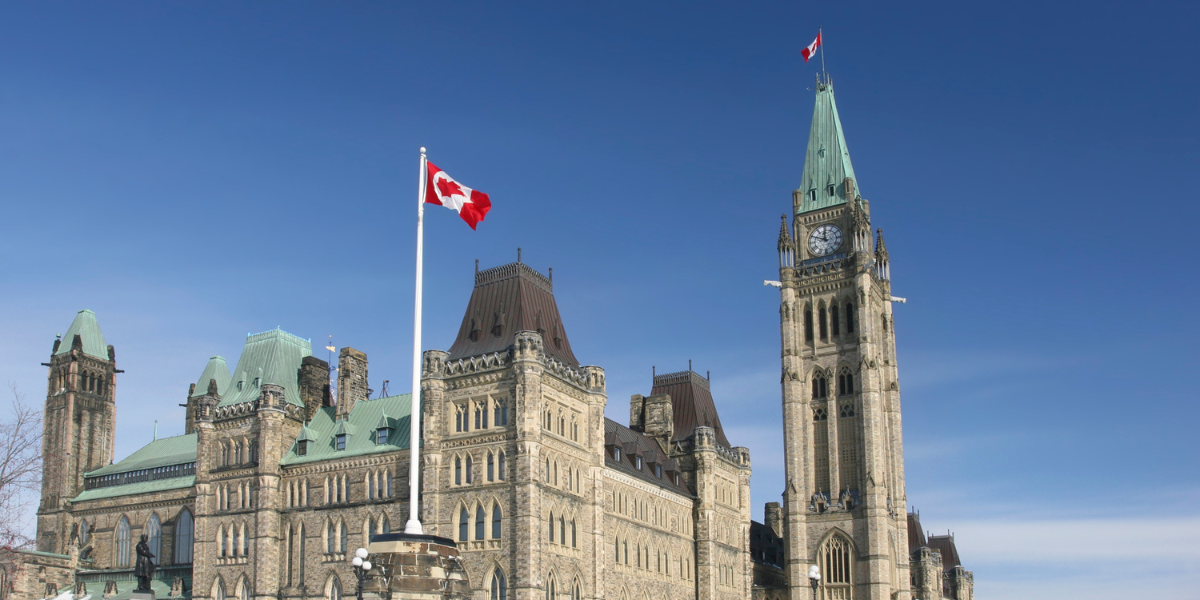Interested in learning more about government relations for nonprofit leaders? Register for our free webinar, Government relations for nonprofit leaders: Navigating the stormy seas of political change, click here.
The coming year represents a period of significant uncertainty and potential political change, with shifts across multiple levels of government poised to reshape the operating landscape for Canada’s nonprofits. The next federal election was slated for fall 2025, but an election could be triggered at any time as a result of the NDP’s formal withdrawal from the supply and confidence agreement with the federal Liberals.
British Columbia, New Brunswick, and Saskatchewan have recently held provincial elections, and Nova Scotians will go to the polls in late November. Doug Ford in Ontario has signaled for months that he may call an early election, now expected for spring 2025.
South of the border, the re-election of Donald J. Trump as President of the United States is reverberating internationally. The policy decisions of a Trump presidency will have a spillover impact on Canadian governments, no matter what stripe. How? Here are some hypothetical examples:
- international trade, including potential tariffs on Canadian economic sectors, in addition to the re-opening of CUSMA (The Canada-United States-Mexico Agreement), would likely dominate the agenda because of its impact on the Canadian economy;
- deportation of illegal migrants, could have a spillover impact on Canada in profound ways, including the demand for services provided by nonprofits;
- increased defence spending, becoming a far greater priority in this country because of a concern that the US will “not be there” despite NATO, NORAD, and our mutual collective interests – and entwined histories.
The list goes on, but while highly speculative, the central concern is that the “unpredictability” of the new US administration will have dynamic impacts for Canadian policymakers, which will inevitably impact Canada’s charities and nonprofits. Taken together, these developments heighten the risks of funding fluctuations and policy changes that will impact Canada’s charitable sector. It’s going to be a bumpy ride.
The high stakes for nonprofits
capitalW has developed a powerful data analytics platform that provides insights into the financial information of Canada’s 80,000 charities which we use when working with national and local organizations. Here is a snapshot of government funding received by registered charities in Canada, as derived from the platform:
Total Government Funding: Charities in Canada collectively receive over $225 billion from government sources, comprising more than 70% of all charitable dollars. This underscores the sector’s considerable reliance on government funding. In fact – the charitable sector is arguably Canada’s largest public-private partnership.
Breakdown by government level:
- Federal: Direct contributions are approximately $12.0 billion. This does not include support from the feds in the form of charitable tax credits and transfer payments to provinces.
- Provincial: Direct contributions clock in at just over $200 billion, forming the bedrock of government support for the sector. This dominant share reflects the significant role of provincial budgets in financing social programs and essential services provided by charitable organizations.
- Municipal: Direct contributions total just over $10 billion. Although a smaller component, this funding is vital for charities engaged in community-specific programs and local service delivery.
Canadian charities are deeply intertwined with government support, with provincial funding as the primary pillar. Any recalibration of budgets or shifts in policy priorities will have implications for the sector’s financial resilience and operational capacity.
A potential government change could redirect public funding streams or deprioritize issues central to many organizations’ missions, leaving nonprofits vulnerable to shifting priorities. Unlike their corporate counterparts, which often have well-established government relations infrastructure, nonprofits are generally more constrained in their capacity to influence policy or anticipate rapid changes. The question then arises: how can nonprofits effectively navigate this period of uncertainty and proactively adapt?
Turning potential political change into strategic opportunity
While political transitions can pose risks, they also present unique openings for nonprofits that are prepared to engage strategically. Elections are often a time of recalibration, when nonprofits can help shape policies in political platforms (before an election) and position themselves as vital partners to incoming policymakers (after elections are completed). By actively planning for multiple scenarios, nonprofits can strengthen their resilience and position themselves to thrive amidst these changes. Here are some pre- and post-election considerations for nonprofit leaders:
1. Strategic review and planning
Start by assessing your current government relations strategy to see if it is achieving your goals, especially considering possible election outcomes. Ask key questions: What is working well? Where can we improve? What can we learn from others? This honest review will help prepare your organization for potential changes affecting funding and policy.
2. Engage with parties on platform development
Even close to an election, it is worth sharing data and policy ideas with parties that may shape their platform. At minimum, get familiar with each party’s priorities to understand how their plans could impact your core programs, helping you focus on any necessary adjustments.
3. Build strategic government relationships
Engaging with civil service leaders before elections is essential. By sharing insights, you can help shape their briefings for a newly elected government, Minister, and their political staff. Building these relationships is an ongoing process and can be invaluable during political transitions, ensuring your organization is prepared for change.
Post-election measures:
4. Update strategy and messaging
Election results can impact your policy and funding goals, so it is important to adjust your strategy and find new ways to engage with decision-makers. Policy changes might also create new opportunities, so keep your strategy and messaging flexible to adapt to both immediate and long-term changes.
5. Broaden funding sources
Reducing dependence on government funding by expanding other revenue sources can add stability. Watch for new government programs and grants that may align with your mission, especially early in a new term, and be prepared to apply quickly.
A strategic path forward
The next year will be a period of uncertainty and potential change. With proactive planning, strong relationship building, and alignment to new priorities, you can use this period to build resilience and strengthen your role as essential community partners. By preparing now, your organization can face uncertainties more confidently, protect your mission, and set yourselves up for lasting impact. The time to act is now.
Register for our free webinar, Government relations for nonprofit leaders: Navigating the stormy seas of political change, click here.
Christopher Holz
Government Relations Advisor, capitalW
Principal, Campbell Strategies
Christopher (Chris) Holz is a seasoned public affairs executive with over 20 years of experience working with government decision-makers and clients.
Providing counsel at all three levels of government, he has served corporate clients, citizens groups, charities and non-profits, in several policy areas including financial services, energy and utilities, real estate and infrastructure development, gaming, film and television, health care, municipal government, environment, among others.
Chris and his colleagues led a pro bono campaign for Canada’s survivors of thalidomide which received national (and international) sustained media coverage, resulting in a unanimous vote in the House of Commons (a rare feat), and a funding agreement of over $180 million to provide survivors with ongoing tax-free support for the rest of their lives.
In addition to his consulting experience, he previously served as a Senior Advisor to several Ontario cabinet ministers, including the Minister of Energy, the Minister of Finance, and the Chair of Cabinet.
Chris holds a Masters of Arts from the University of Toronto, and completed research work at the University of Bath (UK) and Katholische Universitat Brabant (Netherlands).












